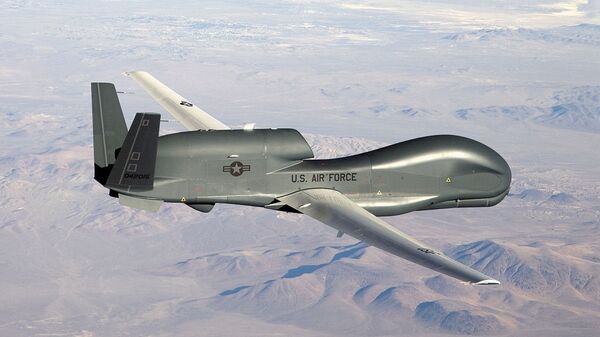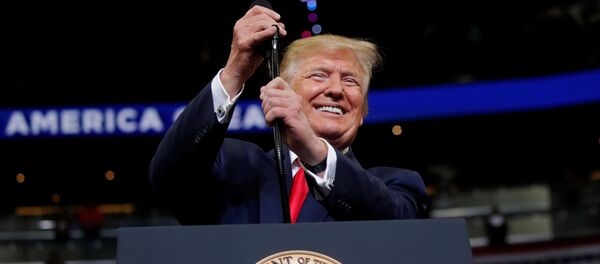Speaking at an event hosted by the Mitchell Institute on Wednesday, US Air Force Chief of Staff Gen. David Goldfein told eventgoers that the US will carry on with its desired operations involving unmanned aerial vehicles.
“We’re continuing to fly,” he told the audience. “We continue to fly where we need to, when we need to be there and as we do in all scenarios.”
"This is a conversation we can have in the South China Sea; this is a conversation we can have anywhere in terms of international airspace in the global commons. We continue to protect those global commons, [and] we continue to operate where we need to operate,” he added.
Military.com reported that the service’s top officer further noted that the Joint Chiefs of Staff are working together to offer US President Donald Trump military options as tensions with Iran remain at a simmer.
"My job as a joint chief is to ensure that we are presenting executable options for the commander-in-chief," Goldfein said. "And so we continue to do that, to make sure that the options that are presented are executable and that he understands the implications, and then of course the decision from our civilian leadership, whether to employ those options."
Although relations between the US and Iran have largely remained on shaky ground since the 1979 Iranian Revolution, tensions between the two countries reached a new level in the last year after the Trump administration opted in May 2018 to withdraw from the 2015 Joint Comprehensive Plan of Action. The move, which ultimately triggered the reinstatement of previously lifted sanctions on Tehran, was followed up by additional sanctions against top Iranian officials and the designation of Iran’s Islamic Revolutionary Guard Corps as a terrorist group.
In response to the downed drone, Trump later revealed that the US was preparing to go ahead with a strike against Iran; however, after realizing that the move would result in civilian fatalities, he shut down the operation. Moving forward, it’s unclear if POTUS will take the same stance. Trump noted in a Tuesday tweet that if Iran strikes “anything American [it] will be met with great and overwhelming force.”





